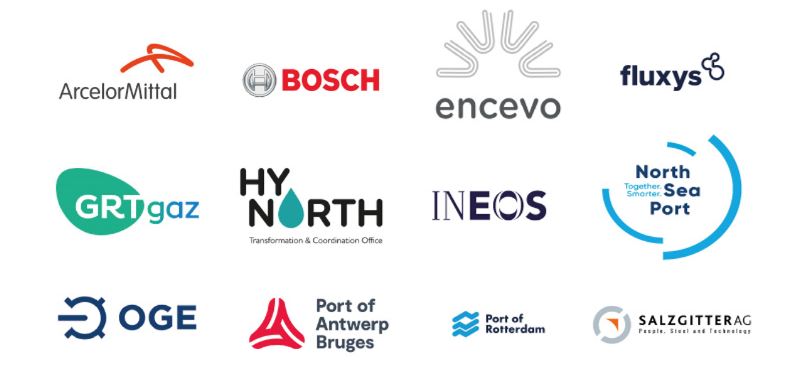Roadmaps and studies WaterstofNet
Contributing to the creation of an integrated hydrogen market within Netherlands-Belgium-Luxembourg-Germany-France
Green Octopus
2019-2023
Green Octopus 2.0 is aiming to contribute to the formation of an integrated hydrogen market between Benelux, Germany and France, by creating a transnational platform that aligns the cross-border, regional strength through a bottom-up approach and allows a flexible way to respond to the dynamic developments at the EU level.
A multi-year project is anticipated in which we will identify and address the cross-border regulatory barriers for the implementation of hydrogen projects and development of a hydrogen market in the region. To this end, the project focuses on
- identifying and addressing the cross-border regulatory challenges for the development of a hydrogen market,
- developing constructive discussions around these issues with the national, Benelux and EC authorities, and
- creating more visibility for the activities of the project partners at EU level.
Next step is to discuss these issues with relevant national, transnational, and European authorities in order to receive support from policy makers for the establishment of required policies in the region, as well as in Europe.
Furthermore, pilot projects with specific focus on smooth and barrier-free transport of hydrogen between the five countries will be initiated within this project, to highlight the existing technical and regulatory challenges and to ask for further support from policy makers to lift up these barriers.
The project partners span across the hydrogen value chain to have a clear view of the needs of the entire energy system. The partners are, in the alphabetical order:
ArcelorMittal (BE, FR, LU), Bosch (DE), Encevo (LU), Fluxys (BE), GRTgaz (FR), HyNorth (Gasunie + Groningen Seaport, NL), Ineos (BE), North Sea Port (NL, BE), OGE (DE), Port of Antwerp-Bruges (BE), Port of Rotterdam (NL), Salzgitter (DE).

Role of WaterstofNet
WaterstofNet (NL/BE) is the project developer and coordinator.
Outcome
Download the final report of Green Octopus (in Dutch).
1st phase
Green Octopus was originally, also, a meta-project, between Belgium-Germany-the Netherlands, and was initiated by WaterstofNet in 2019. Its main purpose was to support its 12 project partners* with the IPCEI process. This purpose was fulfilled in 2021 and all projects of the partners are either submitted already to the first 3 waves or will be submitted for the 4th one.
Next to this structural support to partners during the IPCEI process, we prepared a report presenting the announced hydrogen projects up until the beginning of 2021. In this report, a short description of the projects are presented and the timeline is given for the expected operation time and specific plans for the development of hydrogen infrastructure in the three countries. This report had been shared with the project partners, with the ministries of Economy in the three countries, and with the European organizations such as Hydrogen Europe, Clean Hydrogen Partnership and DG GROW.
In 2022, the continuation of the project was decided by most of the project partners, with new focus on enhancing the project regions into the Benelux, Germany, and France and addressing the cross-border policy and regulatory challenges for the establishment of the hydrogen market between these countries, and eventually within Europe. The new phase of the project, aka., Green Octopus 2.0 was officially launched in February 2023.
*The 12 project partners in the first phase were: Gasunie (NL), VDL (NL), Port of Rotterdam (NL), North Sea Port (NL, BE), Fluxys (BE), Port of Antwerp (BE), Port of Zeebrugge (BE), Engie (BE), Colruyt Group (BE), Bosch (DE), Salzgitter (DE), EKPO (DE).

